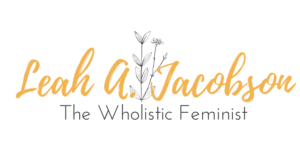I’ve been asked several times recently what I mean when I refer to this idea of “The Feminine Abilities”. I use the phrase when I speak and sometimes when I write.
By “Feminine Abilities” I am referring to the three uniquely female physical abilities: to conceive, birth, and nourish children with only their bodies. To ovulate, gestate, and lactate. These are physical characteristics of being a woman that can never be replicated fully by man, unless serious alterations of the natural order take place.
These abilities are not encompassing of all a woman is capable of doing as they do not directly speak to the unique emotional, intellectual, or spiritual gifts of women. My use of the term Feminine Abilities is not meant to include all the abilities of women as this would reduce us to merely physical beings. However the physical Feminine Abilities do give us clues as to how a woman might integrate the natural function of her physical body with her unique mind to find fulfillment. They remind woman collectively of how she was created and teach women how to fulfill the role that is our vital female contribution to society.
In our current culture the Feminine Abilities are very often suppressed for reasons of convenience. The vast majority of women in the United States of America in their childbearing years use some sort of artificial birth control to override the natural, healthy function of ovulation. It is not that choosing to delay pregnancy is simply a matter of convenience for most women (we know there are legitimate reasons women do this that have nothing to do with convenience); but it is that choosing to ignore the natural healthy signs and cycles of fertility within women’s bodies and choosing not to teach young women how to observe these signs is considered to be simply easier.
Handing young women condoms and chemicals is just easier than educating them. It is not shared with them that success rates for natural family planning rival and surpass some methods of artificial birth control. Education takes time and effort; suppressing and ignoring is rather easy.
The same is sadly often the case with childbirth as well. Many of our currently accepted and promoted labor and delivery practices encourage augmenting labor so that it is more convenient both for the mother in that she can have a birth with less pain, and for the physician on a tight schedule. The time is not taken to allow the natural progression to take place on its own terms. Evidence has shown that models of care that focus on relaxation, acceptance, and education give women birth experiences that not only have better outcomes but that women also view as more empowering.
And then we come to the last of the Feminine Abilities, which is naturally nourishing our children with our own breast milk. While there are now many national and international efforts taking root to encourage the practice of breastfeeding, nearly one in four women never even attempt to nurse. As a lactation consultant working with new breastfeeding mothers this Feminine Ability gives me a unique way to keep my pulse on the current cultural worldview women have of themselves.
I have worked with many women who have struggled with breastfeeding. Breastfeeding is a learning and trusting process for most first time moms. It seldom goes perfectly right and usually a woman is forced to face some sort of hidden doubts she has about her body and her abilities.
What I am seeing is young mothers who do not understand or trust themselves as mothers, or even as women. They are unfamiliar with how their bodies naturally function and have questions that often go far beyond the usual questions of inexperience. Many want to do what they believe to be “right”; i.e. breastfeed, but feel overwhelmed and distrustful that they really can do it. The number one reason women who want to breastfeed end up quitting is perceived low milk supply. There is no actual data to support whether or not these women actually have milk supplies that are inadequate, or if their self-doubts just override their good intentions and the education they have received on how to breastfeed.
I see women with the best of intentions who want to nurse their babies but simply cannot believe that their bodies will be able to provide enough to nourish another. They doubt they will be able to continue to nurse beyond the first few weeks and often quit just as things are starting to get easier. The natural changes that a woman’s body makes to adjust for a mature milk supply (softer breasts with less leaking) are sadly immediately perceived as failures of their body. They quickly give up, convinced that yet again they were not able to do what is natural because of some fault of their own. They believe there is something wrong with them, that they “could never trust their cycle to natural fertility methods, it is too irregular”; or “my hips just aren’t wide enough to give birth naturally”; or “my breasts just don’t seem to make enough milk”. They allow the negative cultural messages about the brokenness and inability of women’s bodies and the Feminine Abilities to permeate their being.
And this self doubt begins the first time we make a negative implication about a young girl’s menstrual cycle or her ability to understand her very own biology. These early messages about a young woman’s body stay with her for her entire life. Her sense of pride in her body is quickly diminished with school curricula that focus heavily on suppressing fertility and attempts to frighten teens into abstinence with horrifying childbirth videos. Our first messages to young women about their bodies MUST be positive and uplifting.
Instead of meaningful rights of passage into womanhood, most young girls are given sanitary products and told how to minimize any attention that may be given to their budding femininity. Then when it is clear that attention is coming nonetheless due to a hypersexualized society, we immediately begin putting our girls on birth control. Young women all too often are not mothered into society under a watchful, protective mantle, but instead find their way there out of curiosity and abandonment.
I sometimes wonder how our nation’s approach to women’s health can be so inconsistent? We insist women embrace one of the Feminine Abilities (breastfeeding) while also insisting that we suppress another (fertility). Our messages to women are contradictory and confusing.
In society the Feminine Abilities are liabilities. They have been unfairly painted as the enemy and seen as something that will hold women back in reaching their fullest potential. What type of “potential” does society value for young women? Not the potential to mother it seems. Having a great career, education, and becoming affluent are what we encourage our daughters to do now. But they are not happier for this because it comes at the expense of them destroying their physical abilities for their mental ones. Either a woman’s body or her intellect are treasured in current society, not both.
Yes, it is wonderful that young women are now free to express themselves in ways never imagined just 100 years ago. However we are far from finished in liberating women from a culture that still wants to suppress our contributions. All we have experienced yet concerning our Feminine Abilities is an ill-thought out plan to elevate our mental abilities over our physical ones. All that was accomplished with women’s “liberation” was that we won the right to reduce ourselves to parts and then destroy the part we don’t want to be. Women’s lib. was not an effort to force society to accept women holistically
Guiding Star is here to right this wrong. We want to help women reconnect themselves with all that it means to be feminine. We want to put women back in touch with the natural functions of her own body and teach them that they are not the enemy. A society that forces us to suppress our very selves to achieve standards of success is the enemy.
We need to free women to be women — ovulating, gestating, lactating women. We seek to advocate for policies and attitudes that treasure our physical contributions to humanity as well as our mental. We can be both physical and spiritual beings, for we are women, the ultimate multitaskers. We seek to be free from old ideas of inadequacy in order to make way for women who fully embrace their whole femininity.
Originally published 2013 at www.theguidingstarproject.com



Leave A Comment